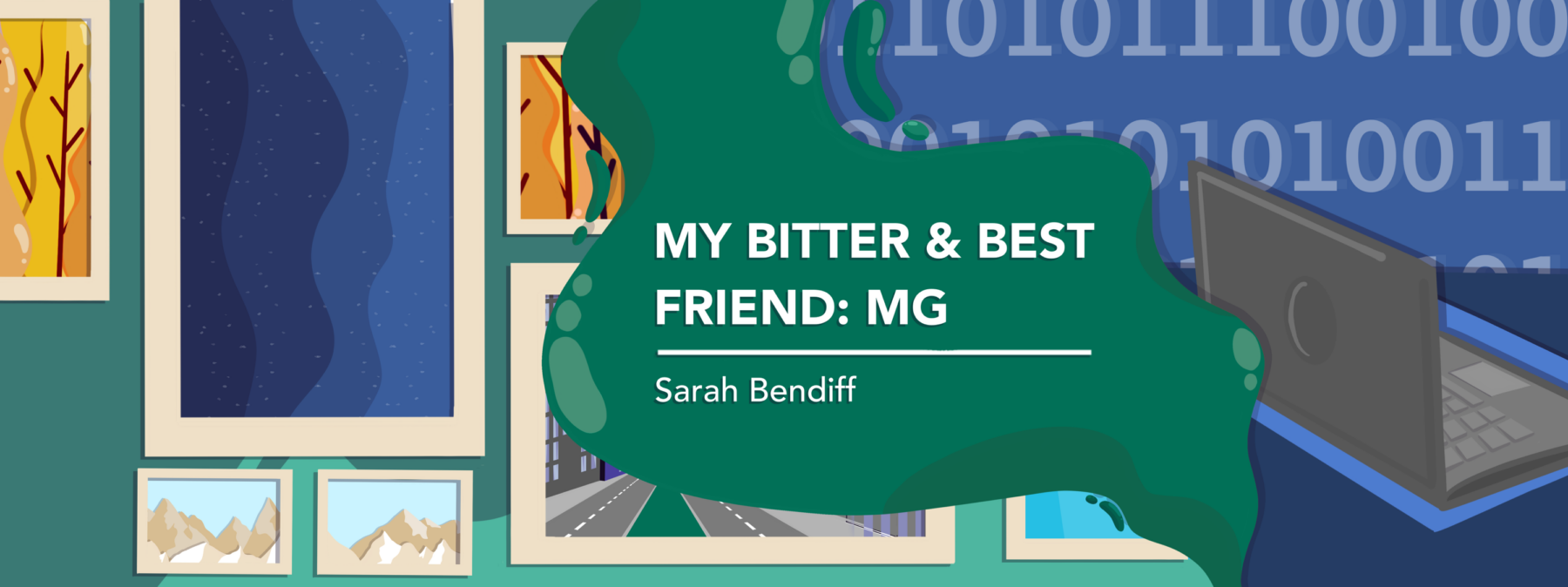The weight of asking for help; the difference an act of service makes
Helping others is the best way to build a world where you’ll be helped too
Written by |

Algerian people are known for their oversized pride and ego. Asking for help — whether it’s about health or financial struggles — is often seen as shameful in our country, or at least it’s frowned upon. But the truth is, how can anyone survive with neither health nor help?
I’ve had the chance lately to work with my boyfriend on my freelancing projects and, in just three months, I’ve achieved more than I did in the past eight years. How? Because he became my legs and arms.
Living with myasthenia gravis (MG) means dealing with sore muscles all day long, heavy legs that tire after just a few steps, and, occasionally, a diaphragm that just doesn’t cooperate. For a freelance social media manager like me, it means staying indoors. A lot.
I’m lucky my work can be done online, even client meetings. But there are still limitations. As human beings, we tend to trust what we see in person. Clients like face-to-face interactions and I’ve come to realize that many of them ended up hiring someone else simply because they met them at a networking event, a business reception, or a casual coffee meetup — places you’d rarely find me.
With a little help from my (boy)friend
That made me feel like MG was stealing my life again. When I went through the stats and tried to figure out where most of my clients came from, I found they were either a friend of a friend or someone I met online. Almost never from real-life, in-person networking.
This frustrated me. I’ve always dreamed of building my own digital communication agency. So I finally decided to take the leap and got myself an office space to bring my team together and make this dream real. But, of course, a new place comes with a lot of effort — especially setting it up.
Renovations, furniture shopping, organizing deliveries — even if I did everything online, I still had to physically receive and install everything in an apartment on the third floor. That’s already a challenge for healthy people. For me, it felt nearly impossible.
That’s where my boyfriend stepped in. Without me even asking, he took care of everything. I was honestly shocked at how quickly it all got done — without pain, without sore muscles, and with my breathing totally under control. It was a moment that made me realize how life-changing real support is.
The difference an act of service makes
At home, it doesn’t always feel like that. Sometimes I feel like I’m draining the people around me with my requests. I’ve developed a lot of frustration about how hard it is for others to understand that simple gestures — like handing me a glass of water — can mean everything when you live with a chronic illness. It’s not laziness. It’s not procrastination. It’s survival.
Those of us with MG live in fear of consequences. One small extra step can affect our whole day. That doesn’t make us dramatic. It’s the outcome of countless invisible battles we fight each day.
Having a partner or a relative who helps without keeping score, who loves through actions, who doesn’t question your limits or accuse you of “taking advantage” — that changes everything. So my advice to anyone living with a chronic illness is to find someone whose love language is acts of service.
And if you don’t have that person yet, take the time to explain, and reexplain, what you need. Remind them that asking for help can be just as exhausting as giving it. No one chooses this situation. And even when it looks like someone is relying on others too much, that might be a sign of emotional distress or psychological struggle. That, too, deserves empathy, not judgment.
Because one day, the roles may be reversed. No one is safe from accidents or illness. Helping others with love is the best way to build a world where you’ll be helped, too, when it’s your turn to need it.
Note: Myasthenia Gravis News is strictly a news and information website about the disease. It does not provide medical advice, diagnosis, or treatment. This content is not intended to be a substitute for professional medical advice, diagnosis, or treatment. Always seek the advice of your physician or other qualified health provider with any questions you may have regarding a medical condition. Never disregard professional medical advice or delay in seeking it because of something you have read on this website. The opinions expressed in this column are not those of Myasthenia Gravis News or its parent company, Bionews, and are intended to spark discussion about issues pertaining to myasthenia gravis.



Mary Donahue
Accepting help is some times difficult to accept also, especially if you have a mild case of mg.